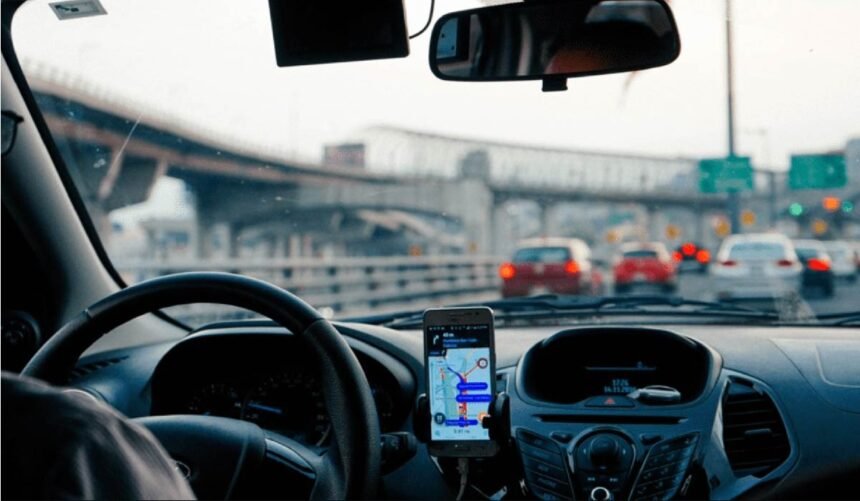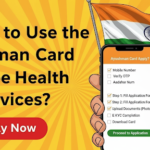Every dollar counts when running a business and iOS professionals know how quickly expenses can add up. One area that often goes overlooked is mileage, yet tracking it accurately can lead to significant savings. That’s where a mileage tracker comes in, making it easy to log every mile and maximize deductions.
With a reliable mileage tracker app, professionals can automate the process and eliminate guesswork. This simple tool helps ensure no trip goes unrecorded, reducing errors and boosting efficiency. For those serious about cutting costs, using a mileage tracker is a smart move that pays off at tax time.
Understanding the Need for Cost Efficiency in Business
Businesses prioritize cost efficiency to keep operations profitable and resources optimized. Rising expenses for fuel, software subscriptions, and administrative work challenge professionals. Competitive markets like app development or consulting require precise allocation of budgets for tools, travel, and client delivery. Managers analyze spending to pinpoint areas for streamlined processes or technology adoption.
Frequent oversight of minor business expenses, including trip mileage, meals, or subscriptions, often increases total spending. Business owners track every deductible expense to lower taxable income and improve financial statements. Organizations that prioritize efficiency report up to 30% higher net margins, according to Deloitte’s Global Cost Survey 2023.
Increased cost visibility from precise expense tracking supports smarter decisions. Accurate records enable teams to identify supply chain gaps, detect duplicate expenses, and direct resources toward growth. Integrating technology like a mileage tracker reduces manual errors, strengthens compliance, and supports audit-readiness, resulting in consistent long-term savings.
Challenges iOS Professionals Face With Manual Mileage Tracking
Manual mileage tracking often leads iOS professionals to encounter several issues that impact business cost efficiency.
- Inaccurate Records
Handwritten logs frequently contain errors and omissions. Missed start or end odometer readings result in incomplete documentation for tax purposes.
- Lost Time
Recording every business trip by hand takes additional minutes daily. Cumulatively, this reduces overall productivity for professionals managing multiple client meetings or site visits.
- Compliance Risks
Incomplete or inconsistent mileage records put professionals at risk during IRS audits. IRS guidelines require detailed trip data, including dates, destinations, and business purpose, referencing IRS Publication 463.
- Missed Tax Deductions
Manual processes often underestimate qualifying miles. This causes iOS professionals to underclaim eligible deductions, directly impacting net profit.
- Administrative Overhead
Managing physical logbooks or spreadsheets creates extra administrative tasks. Disorganized records increase the risk of data loss and poor expense tracking.
- Lack of Real-Time Insights
Manual tracking doesn’t provide instant mileage summaries or analytics. Absence of aggregated data hinders weekly, monthly, or annual reporting essential for budgeting and tax planning.
Manual mileage tracking’s inefficiencies highlight the need for streamlined, automated solutions that support business cost-cutting for iOS professionals.
What Is a Mileage Tracker and How Does It Work on iOS?
A mileage tracker for iOS professionals captures, calculates, and categorizes travel distances for work purposes using the iPhone’s built-in sensors and GPS. Automatic tracking reduces errors and minimizes administrative time for business expense management.
Core Features of iOS Mileage Tracker Apps
- Automatic Trip Detection: Apps identify car trips and record routes using motion sensors and location services on iOS. Examples include TripLog, MileIQ, and Everlance.
- Route Mapping: Visual mapping displays routes and distances accurately, increasing transparency.
- Categorization: Apps organize mileage by business, personal, and other purposes for streamlined records.
- Expense Calculation: Trackers apply IRS mileage rates to generate precise expense reports on demand.
- Cloud Sync and Data Backup: Automatic cloud backup prevents data loss even if a device is replaced or damaged.
- Customizable Reporting: Users generate reports suitable for reimbursement or auditing in PDF and CSV formats.
Integration With Business Operations
- Accounting Software Sync: Apps export trip data directly to platforms like QuickBooks or Xero, streamlining reconciliation and expense audits.
- Automated Reminders: In-app notifications prompt employees and contractors to verify trips, maintaining compliance.
- Team Management: Administrators monitor multiple users’ mileage from a central dashboard, improving oversight for distributed or remote teams.
- Policy Customization: Custom mileage thresholds and approval workflows align with unique business expense policies.
- Tax Documentation: IRS-compliant logs simplify deductions and support audit defense, reducing financial risk for iOS professionals.
Committed use of a mileage tracker on iOS increases accuracy in business reporting, boosts cost efficiency, and supports compliance in professional operations.
Cutting Business Costs With an iOS Mileage Tracker
Adopting an iOS mileage tracker delivers measurable cost reductions for service-based professionals. Automation and accurate data facilitate better resource allocation across business operations.
Reducing Administrative Overhead
Automating mileage tracking reduces administrative overhead for iOS professionals by eliminating manual entry and paperwork. Users experience fewer duplicated tasks since apps capture trip distances and times with GPS. Cloud-based logs replace physical notebooks, cutting storage and retrieval time. Teams share access to records instantly, which lowers communication delays and supports real-time approvals. Process streamlining enables staff to focus on billable work, decreasing hours spent on back-office functions.
Streamlining Expense Reporting and Tax Deductions
A mileage tracker streamlines expense reporting and tax deductions through instant categorization and export features. Logged trips automatically separate business from personal travel, removing manual sorting steps. Reports export directly to accounting software, such as QuickBooks, ensuring consistent documentation for IRS requirements. Digitized records limit compliance risks and missed deduction opportunities. Real-time insights help professionals project quarterly costs, monitor deductible mileage, and prepare thorough supporting documents during audits. Data precision strengthens tax filings and increases potential reimbursement or deduction claims.
Choosing the Right Mileage Tracker for iOS Professionals
Selecting a mileage tracker optimized for iOS impacts cost savings, compliance, and workflow efficiency in professional settings. The right app automates record-keeping, ensures IRS-ready documentation, and simplifies integration with business tools.
Key Criteria for Selection
- Automatic Trip Detection
Apps that use iOS background location services like MileIQ and Everlance capture trips without manual input, minimizing overlooked expenses.
- IRS-Ready Reporting
Software must create exportable reports that align with IRS documentation standards; both TripLog and MileageWise, for example, offer one-click tax-compliant logs.
- Third-Party Integrations
Top trackers integrate directly with accounting software such as QuickBooks or Xero, enabling seamless expense reconciliation.
- Cloud Backup and Sync
Services with real-time cloud syncing like Driversnote provide secure access across multiple devices, reducing the risk of record loss.
- In-App Categorization
Solutions offering robust categorization—such as business, personal, or medical—help professionals distinguish deductible mileage.
- Team Functionality
Apps geared for organizations, including Zoho Expense, support multiple users and centralized management, important for team-based iOS operations.
- Pricing Structure
Transparent pricing plans avoid unexpected costs; leading options offer tiered packages that scale with business growth.
Top Mileage Tracker Apps for iOS
| App | Automatic Detection | IRS Compliance | Integrations | Multi-User Support | Cloud Sync | Price (Annual, USD) |
| MileIQ | Yes | Yes | QuickBooks, Xero | No | Yes | 59.99 |
| Everlance | Yes | Yes | FreshBooks, QuickBooks | Yes | Yes | 60.00 |
| TripLog | Yes | Yes | Xero, Concur | Yes | Yes | 59.99 |
| Driversnote | Yes | Yes | None | Yes | Yes | 96.00 |
| Zoho Expense | Yes | Yes | Zoho Suite, QuickBooks | Yes | Yes | 36.00 |
| MileageWise | Yes | Yes | CSV, PDF export | Yes | Yes | 59.88 |
Each app above addresses the primary needs of cost-conscious iOS professionals, supporting automation, compliance, and reliable expense tracking for business mileage.
Key Takeaways
- Using a mileage tracker app streamlines the process of logging business travel, leading to more accurate records and maximizing tax deductions for iOS professionals.
- Automated mileage tracking eliminates manual errors, reduces administrative workload, and saves valuable time previously spent on paperwork.
- Mileage tracker apps ensure compliance with IRS requirements by generating detailed, audit-ready reports and supporting seamless integration with accounting software.
- Selecting the right iOS mileage tracker—one that offers automatic detection, cloud backup, and multi-user management—can significantly reduce business costs and improve operational efficiency.
- Consistent and reliable use of a mileage tracker empowers iOS professionals to optimize expenses, make informed budgeting decisions, and enhance overall profitability.
Conclusion
Choosing a mileage tracker for iOS isn’t just about convenience—it’s a strategic move that helps professionals stay competitive and financially agile. With rising business costs and tighter margins, every tool that boosts accuracy and saves time matters.
By adopting the right mileage tracker, iOS professionals can put more money back into their businesses, cut down on administrative headaches, and ensure they’re always ready for tax season. Embracing automation today sets the stage for smarter business growth tomorrow.








